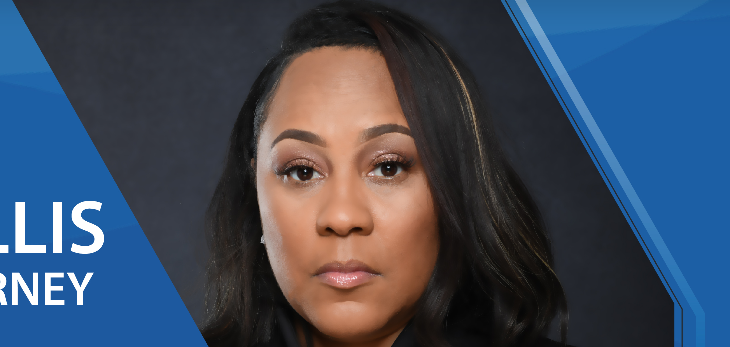Fulton County District Attorney Fani Willis's penchant for cash transactions during personal trips, particularly with top prosecutor Nathan Wade involved in the Donald Trump Georgia election subversion case, has garnered attention amidst ongoing ethics hearings.
This preference was vividly illustrated during a winery visit in Napa Valley's Acumen Wines, where Willis, in an unexpected turn, settled a $400 bill in cash, a method of payment that raised eyebrows given its rarity in such upscale locales, according to CNN.
"I rang up the thing and I showed her," recounted Stan Brody, the estate ambassador at Acumen Wines, reflecting on his interaction with Willis. "I was expecting a credit card quite frankly. And she says I'll pay cash," he continued, highlighting the unexpected nature of the transaction.
This anecdote from Brody not only corroborates Willis's proclaimed cash-paying habits but also casts a personal light on the district attorney, portraying her as a generous and amiable customer, diverging from the formal image often associated with her public office.
The narrative around Willis's cash transactions doesn't end at the winery's doorstep. Both Willis and Wade have echoed this theme in their testimonies, emphasizing a mutual understanding and respect for Willis's insistence on independence and financial autonomy within their relationship.
"When I travel I always pay cash," Willis stated, underscoring a practice she deems prudent and personal. Wade's testimony complemented this, shedding light on the dynamics of their relationship: "In a relationship, ma'am, you don't - particularly men, we don't go asking back for anything. So you're not keeping a ledger of things that you pay for versus the thing that she's paid for."
These personal insights into Willis and Wade's interactions provide a backdrop to the ethical and legal challenges they face, particularly in relation to the high-profile Georgia election subversion case against former President Donald Trump. The defense's motion to disqualify Willis hinges on the perceived intertwining of personal relationships and professional duties, a contention that Willis counters with her narrative of financial independence and transparency, albeit in cash form.
As the case progresses, the scrutiny of Willis's cash transactions transcends mere financial curiosity, evolving into a pivotal element of the broader ethical examination she is subjected to. The absence of a conventional paper trail for these transactions, while not uncommon in personal contexts, becomes magnified under the lens of legal and ethical standards expected of public officials, especially those involved in cases of significant political and social consequence.






